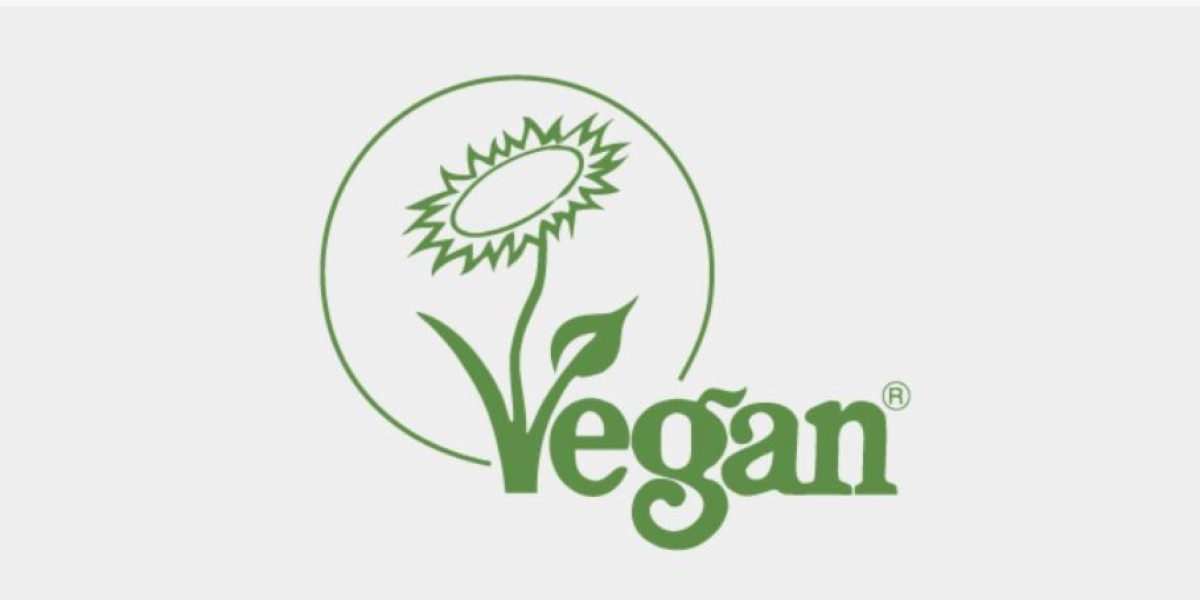In today’s increasingly health-conscious and ethically driven world, more people are turning to plant-based lifestyles. But as consumer demand for cruelty-free, plant-based products rises, so does the need for trust and transparency. This is where Vegan certification comes into play. It acts as a verified mark that a product is free from animal ingredients, animal testing, and other practices contrary to vegan principles. It assures consumers that what they’re buying aligns with their values. Whether it's food, cosmetics, fashion, or household items, a vegan-certified label serves as a trusted indicator in a crowded and often confusing market. With more global brands seeking this label, understanding how vegan certification works—and what it guarantees—has never been more important.
Understanding the Vegan Certification Process
The vegan certification process involves a detailed review of ingredients, manufacturing processes, and facility protocols to ensure that animal-based products or by-products are not used at any stage. Independent third-party organizations are typically responsible for issuing these certifications. Brands must submit documentation, including ingredient lists, supplier confirmations, and production process details. Inspectors may conduct facility audits to ensure compliance. Each certifying body may have slightly different criteria, but the fundamental requirement remains the same: absolutely no involvement of animals. Additionally, some certification bodies require periodic renewals, ensuring that the vegan standards are continuously upheld over time. For businesses aiming to win consumer trust and build brand credibility, obtaining a vegan certification is a critical step.
Benefits of Vegan Certification for Businesses
For companies, acquiring vegan certification isn’t just about following ethical practices—it also opens doors to new markets and loyal customer bases. A growing number of consumers only purchase products that align with their vegan lifestyle. By showcasing a recognized vegan certification label, companies increase their appeal and can stand out from competitors who may make vague or unverified claims. Vegan certification also simplifies the purchasing decision for consumers, providing assurance that the product meets established vegan criteria. It’s an effective marketing tool that enhances brand reputation, increases sales, and fosters consumer loyalty. Additionally, certified businesses often gain access to niche markets like vegan retailers, specialty stores, and online vegan marketplaces.
Different Types of Vegan Certification Labels
There are several reputable vegan certification programs globally, each with its own logo and validation process. The Vegan Society (UK) offers the iconic sunflower symbol, while Vegan Action (U.S.) provides the Certified Vegan logo. Other well-known certifiers include PETA’s “Cruelty-Free and Vegan” logo and the American Vegetarian Association. These organizations verify not only the ingredients but also ensure there’s no cross-contamination or animal testing involved. Depending on your target market, it’s vital to choose the right certifying body. Some certifications are better recognized in specific countries or industries. Understanding these differences will help businesses select a certification that maximizes visibility and consumer trust within their target audience.
How to Apply for Vegan Certification
Securing vegan certification typically starts with selecting a credible certifying agency. Once chosen, businesses must complete an application that outlines detailed information about their product, including a full list of ingredients and details about the production process. Supporting documentation from suppliers may be required to confirm the origin and handling of each ingredient. After submission, the certifying body reviews the data, and in many cases, conducts facility inspections to verify compliance. Upon successful review, the company receives approval to use the vegan-certified label on their products. While the process may take a few weeks or even months, the long-term benefits far outweigh the effort. Certification ensures transparency, builds credibility, and opens up new business opportunities in the plant-based sector.
Common Misconceptions About Vegan Certification
Many consumers believe that all products labeled "vegan" are automatically certified. However, the reality is that not all brands go through the official certification process. Some simply self-declare their products as vegan without undergoing third-party verification. This is risky, as it can mislead consumers and result in backlash if inaccuracies are discovered. Another misconception is that vegan certification is only relevant to food products. In truth, everything from skincare and cosmetics to clothing and cleaning products can be certified vegan. Certification applies to any product that could potentially involve animal ingredients or animal testing. Recognizing these myths helps both consumers and businesses make informed decisions about vegan labeling.
Vegan Certification vs. Cruelty-Free Certification
While often used interchangeably, vegan and cruelty-free certifications are not the same. Cruelty-free specifically means the product and its ingredients were not tested on animals. Vegan certification, on the other hand, ensures that the product contains no animal ingredients and is not tested on animals. A product can be cruelty-free but still contain animal-derived ingredients like honey, beeswax, or lanolin. Therefore, if a brand wants to truly appeal to the vegan community, obtaining both certifications is ideal. This dual certification ensures ethical sourcing and production practices, satisfying the growing demand for compassionate and sustainable consumer goods.
Why Vegan Certification Is Crucial in Today’s Market
As ethical consumption trends accelerate, consumers are scrutinizing product labels more than ever. With rising concerns about animal welfare, environmental sustainability, and health, people are choosing products that reflect their values. Vegan certification provides an easy way to identify such products. For businesses, it builds brand transparency, establishes trust, and showcases a strong commitment to ethical practices. It also future-proofs companies in an evolving marketplace where plant-based preferences are becoming the norm rather than the exception. Whether you're a manufacturer, retailer, or service provider, embracing vegan certification isn’t just good ethics—it’s smart business.
Conclusion: Why You Should Consider Vegan Certification Today
The importance of vegan certification in modern consumerism cannot be overstated. It offers credibility, market advantage, and trust—essential elements for thriving in today’s ethical economy. Whether you're a startup or an established brand, gaining vegan certification can help you align with current trends and meet the demands of conscious consumers. As more people prioritize sustainability and compassion, certified vegan products are no longer a niche—they're a necessity. Companies looking to make an impact in this fast-growing sector should take steps toward certification now. That’s why brands like caratga understand the value of vegan certification and the long-term benefits it brings to businesses and society as a whole.



